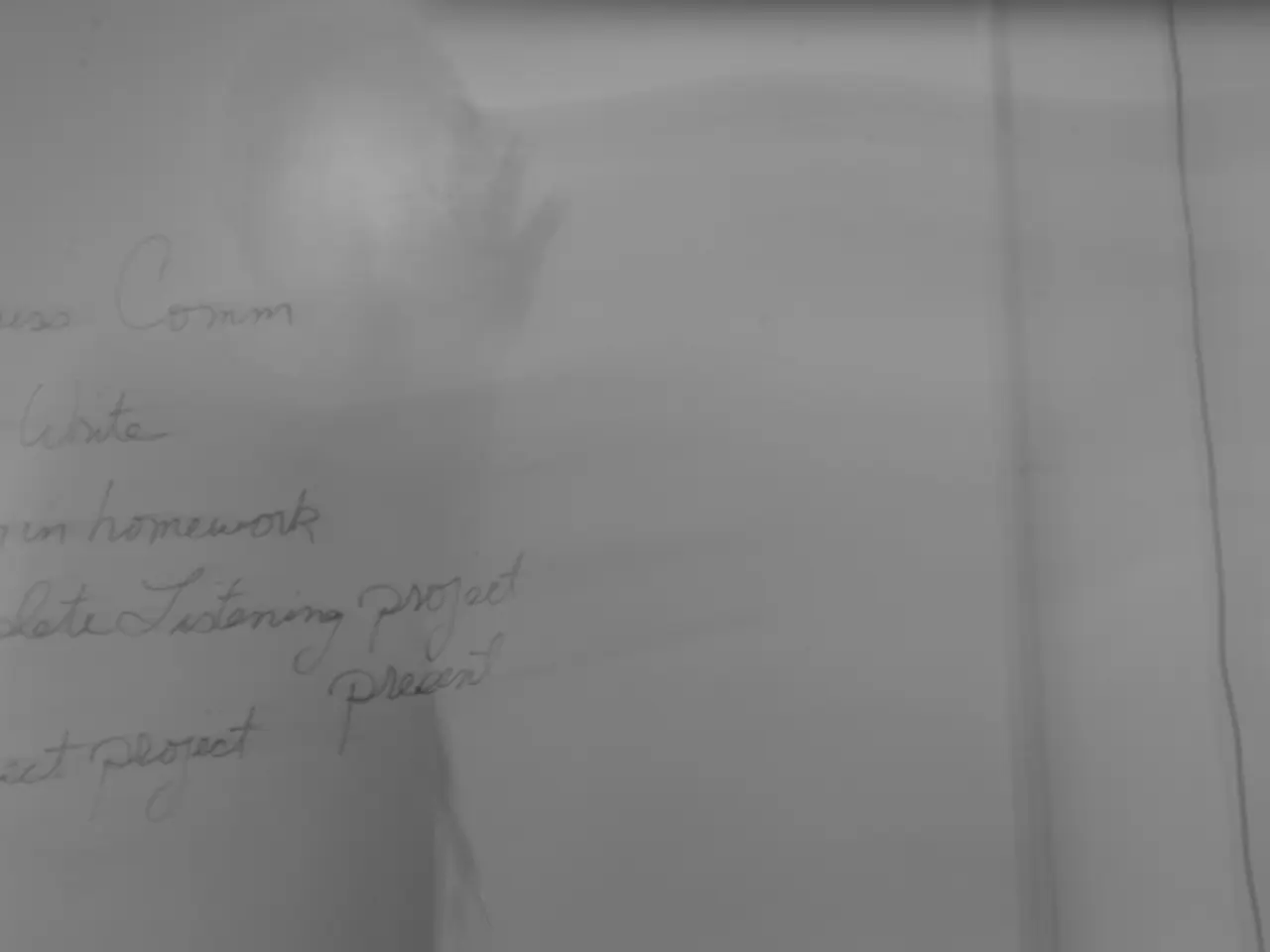Expanding Investment Strategies in the Private Market Sector
In a recent interview on the Goldman Sachs Exchanges: Great Investors podcast, Raffaele Savi, the global head of BlackRock Systematic, discussed the transformative potential of Artificial Intelligence (AI) in private market investments.
Savi, who also sits on BlackRock's global executive committee, highlighted the increasing role of AI in investment strategies, particularly in private markets. He believes that AI will enable a systematic investment approach over longer time horizons and in less liquid asset classes, where traditional systematic investing had been limited.
Two key AI-driven concepts impacting investing, according to Savi, are scale and universality. AI enables investment strategies to operate at much larger scales, which is a critical driver of success in the industry. The universality of generative AI and large language models (LLMs) makes them more accessible and broadly applicable across investing contexts, broadening their appeal and usability.
Savi's team at BlackRock Systematic, which manages over $317bn in assets under management, has already started to leverage AI in their investment processes. They have developed products with BlackRock's private equity team, applying a traditional fundamental investment approach to private equities.
Savi is optimistic about the future of systematic investing in private markets. He predicts that it will become "the big market" over the next ten years as more investors hold private assets. He also sees potential in building an optimal public/private portfolio, aiding in creating safer portfolios, similar to the way safety engineering has improved cars and airplanes.
BlackRock itself is committed to this shift. The company, which recently closed a $12bn acquisition of global credit investment manager HPS Investment Partners on 1 July 2025, aims to have 30% of its group revenue coming from private markets and technology by 2032.
Savi also anticipates more partnerships and collaborations in the market for private equity investments over the next ten years. He believes that these collaborations will help portfolios become more resilient to shocks, making them more robust in the face of market volatility.
In conclusion, AI is set to expand the reach and capabilities of systematic investing beyond liquid public markets, facilitating scalable, systematic strategies in private markets underpinned by improved data handling, natural language interaction, and robust model verification. As BlackRock and its leaders like Raffaele Savi continue to embrace AI, we can expect to see significant changes in the world of private market investments.
[1] Savi, Raffaele. (2025). Interview on Goldman Sachs Exchanges: Great Investors podcast, 29 July 2025. [4] Savi, Raffaele. (2025). Presentation at the AI in Finance conference, 15 September 2025.
- The transformative potential of Artificial Intelligence (AI) in private market investments, as discussed by Raffaele Savi, could lead to the development of scalable, systematic strategies, such as fixed income investments and equities, on goldman sachs exchanges and other financial platforms.
- In his interview on the Goldman Sachs Exchanges: Great Investors podcast and his presentation at the AI in Finance conference, Raffaele Savi, the global head of BlackRock Systematic, emphasized that AI will enable investing in less liquid asset classes, like private markets, by operating at larger scales and making use of technology, such as large language models (LLMs), to broaden the appeal of systematic investing.
- As AI continues to reshape the investing landscape, Savi anticipates more partnerships with technology companies, exchanges, and fintech firms to build advanced, AI-driven solutions for private equity investments, which will help portfolios become more resilient to shocks and market volatility.
- According to Savi, the future of systematic investing in private markets will be marked by a significant shift towards technology, with companies like BlackRock aiming to have 30% of their group revenue coming from private markets and technology by 2032, potentially leading to an increase in technology offerings, such as AI-driven event trading solutions.








